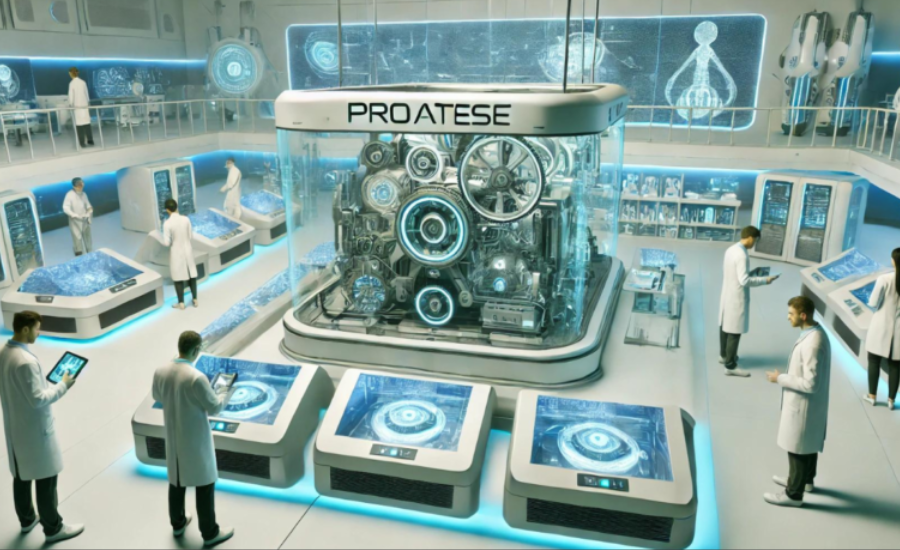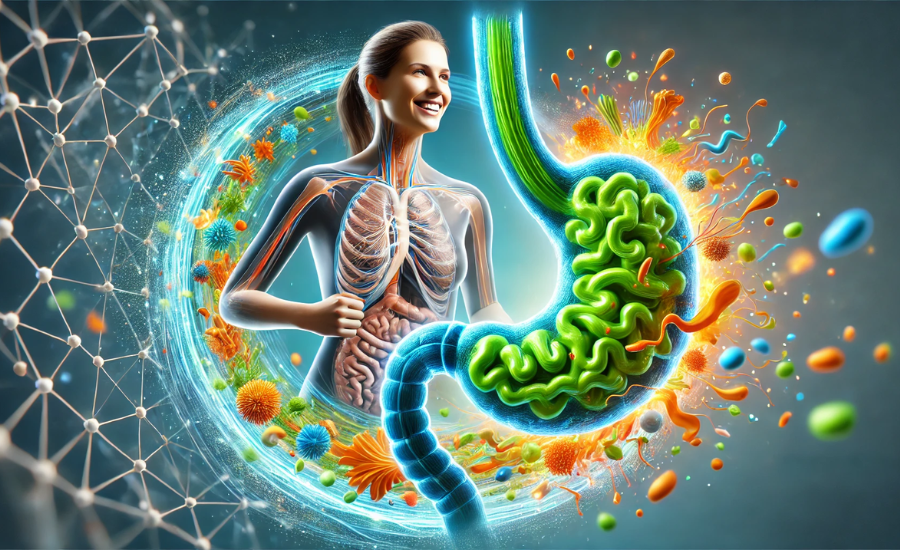Proteins are vital to life, performing a variety of functions essential for the survival, repair, and growth of cells in all living organisms. However, the accumulation of misfolded or damaged proteins within cells can contribute to serious diseases, such as neurodegenerative disorders and certain cancers. To maintain cellular health and homeostasis, our bodies have evolved mechanisms for degrading unwanted or defective proteins.
A novel approach in this field is the development of proatese—a specialized class of molecules designed to target and degrade specific proteins with precision. This article explores how proatese could revolutionize the treatment of diseases by addressing limitations in traditional protein degradation pathways.
Understanding Protein Degradation Mechanisms

Before diving into the innovative concept of proatese, it’s important to understand the traditional mechanisms that cells use to eliminate unwanted proteins. The two major pathways are:
- The Ubiquitin-Proteasome System (UPS)
- The UPS tags proteins with a molecule called ubiquitin, marking them for degradation. The tagged proteins are then broken down by the proteasome, a large enzyme complex.
- Autophagy
- Autophagy captures cellular components, including misfolded proteins, within vesicles called autophagosomes. These vesicles eventually fuse with lysosomes, which contain enzymes to break down and recycle the captured material.
While these systems are effective, they face challenges, especially when overwhelmed by an accumulation of faulty proteins or when certain proteins are resistant to degradation.
Challenges In Traditional Protein Degradation
Despite their importance, the UPS and autophagy have limitations:
- Overwhelmed Systems: Excessive misfolded proteins can stress the UPS, disrupting cellular processes.
- Selective Degradation Issues: Some defective or harmful proteins evade these pathways, contributing to disease progression.
- Bulk Processing by Autophagy: While autophagy is efficient for large-scale degradation, it lacks the precision required for targeting specific proteins involved in diseases like cancer or neurodegeneration.
These limitations highlight the need for new strategies, and this is where proatese comes into play.
Proatese: A Targeted Approach To Protein Degradation

Proatese offers a highly targeted and efficient way to degrade specific proteins directly, bypassing the limitations of traditional degradation pathways. Derived from the Greek words “pro” (before) and “tease” (to unravel), proatese molecules are designed to bind to particular proteins and dismantle them, offering a groundbreaking approach to treating diseases at the molecular level.
Key Characteristics Of Proatese
- Specificity: Proatese molecules are engineered to target only certain proteins, minimizing off-target effects and ensuring precise degradation.
- Potency: These molecules are effective even in small doses, inducing significant degradation of harmful proteins.
- Self-Degradability: After completing their task, proatese molecules are broken down, reducing the risk of toxicity.
- Versatility: Proatese can target both intracellular and extracellular proteins, making it useful across a range of therapeutic applications.
How Proatese Promotes Health And Well-Being?
In addition to its disease-targeting potential, proatese plays a crucial role in promoting health by aiding in digestion, boosting immunity, and reducing inflammation. When proteins from food are broken down efficiently, the body absorbs essential nutrients more effectively. This process supports energy production, tissue growth, and overall well-being.
Proatese has also shown promise in preventing chronic health issues by:
- Enhancing immune function to protect against infections.
- Reducing inflammation, which is associated with various chronic diseases, including heart disease and arthritis.
Therapeutic Potential Of Proatese In Disease Treatment

The targeted nature of proatese makes it an exciting candidate for treating several challenging diseases:
1. Neurodegenerative Diseases
Conditions like Alzheimer’s, Parkinson’s, and Huntington’s disease are characterized by the buildup of toxic proteins in the brain. Proatese molecules could be designed to break down these misfolded proteins, reducing cellular damage and slowing disease progression.
2. Cancer
Many cancers involve abnormal proteins that promote tumor growth and metastasis. Proatese offers the potential to degrade these oncogenic proteins, suppressing cancer development and enhancing the effectiveness of other treatments.
3. Genetic Disorders
Certain genetic conditions arise from the production of faulty proteins due to gene mutations. Proatese could target and degrade these defective proteins, restoring normal cellular functions.
4. Infectious Diseases
Viruses and bacteria rely on specific proteins to survive and replicate. Proatese could be used to disable these proteins, preventing the spread of infections and potentially reducing the need for antibiotics or antiviral drugs.
Challenges And Future Directions For Proatese Research
While the potential of proatese is immense, several challenges must be addressed to unlock its full therapeutic potential:
- Efficient Delivery: Delivering proatese molecules to specific tissues—such as the brain—remains a challenge due to biological barriers.
- Maintaining Specificity: Designing molecules with high specificity is essential to avoid unintended side effects.
- Safety and Toxicity Concerns: Careful formulation is required to ensure that proatese is safe and does not cause adverse effects.
- Clinical Validation: Rigorous testing through clinical trials will be necessary to confirm the efficacy and safety of proatese in human treatments.
Despite these challenges, ongoing research is likely to bring exciting developments, paving the way for new treatment options for previously untreatable conditions.
Easy Ways To Add Proatese To Your Routine
Proatese can also be incorporated into a healthy lifestyle as a dietary supplement, helping individuals maintain digestive health and reduce inflammation. Here are a few ways to include it in your daily routine:
- Smoothies: Add proatese powder to your morning smoothie for a nutritious start to the day.
- Salads and Soups: Sprinkle proatese powder over salads or stir it into soups for added benefits.
- Drinks: Mix proatese supplements into water, juice, or herbal teas for easy consumption.
This flexibility makes it simple to enjoy the health benefits of proatese without much effort.
Fun Facts About Proatese
- Inspired by Natural Mechanisms: Proatese mimics the body’s own processes to remove harmful proteins, offering a natural and efficient way to maintain cellular health.
- Pinpoint Precision: Unlike traditional methods that degrade multiple proteins at once, proatese works with exceptional accuracy, breaking down only the targeted protein.
- A Potential Antibiotic Alternative: By dismantling essential bacterial proteins, proatese could reduce dependence on antibiotics, addressing growing concerns about antibiotic resistance.
- Health Benefits Beyond Treatment: In addition to targeting disease-causing proteins, proatese promotes digestion, reduces inflammation, and supports immune function.
- Versatility Across Conditions: Whether dealing with neurodegenerative disorders, cancers, or infections, it has the flexibility to address a wide range of diseases.
- Rooted in Greek Etymology: The term “proatese” combines “pro” (before) and “tease” (to unravel), reflecting its ability to untangle complex proteins at a molecular level.
FAQs About Proatese
Q: What is proatese?
A: Proatese refers to a novel class of molecules that selectively target and break down specific proteins associated with diseases or dysfunctions, offering a precise therapeutic approach.
Q: How does proatese differ from traditional protein degradation methods?
A: Proatese focuses on breaking down individual proteins with precision, while traditional pathways like the UPS and autophagy handle proteins in bulk, often leading to inefficiencies or stress on the system.
Q: What kinds of diseases might proatese help treat?
A: Proatese shows promise for treating neurodegenerative diseases (like Alzheimer’s and Parkinson’s), cancer, genetic disorders, and infections by targeting the specific proteins involved in these conditions.
Q: Is proatese safe to use?
A: Preliminary studies suggest that proatese molecules are safe because they degrade themselves after completing their task. However, further clinical trials are required to ensure their safety and efficacy.
Q: Can proatese improve digestion?
A: Yes, proatese enhances digestion by breaking down food proteins, improving nutrient absorption, and promoting digestive health.
Q: What challenges exist in using proatese as a therapy?
A: Challenges include delivering the molecules to specific tissues, maintaining precision to avoid unintended side effects, and meeting clinical safety standards through rigorous testing.
Q: Can proatese be used for all protein-related disorders?
A: Its application depends on developing tailored versions that precisely target the specific proteins associated with each disorder or disease.
Conclusion
Proatese introduces a groundbreaking method for addressing the challenges of traditional protein degradation by offering precision at a molecular level. This innovation holds vast potential for treating diseases that were previously difficult to manage, such as neurodegenerative disorders, cancer, and genetic conditions. Beyond its therapeutic uses, its also promotes overall wellness by enhancing digestion, reducing inflammation, and supporting immune function.
Although challenges remain, such as efficient delivery and maintaining specificity, research in this area is advancing rapidly. With continued exploration and clinical validation, its could soon become an essential component in modern medicine, transforming how we approach disease management and long-term health.
Stay in touch for more updates and alerts visit: Latest Dash!

